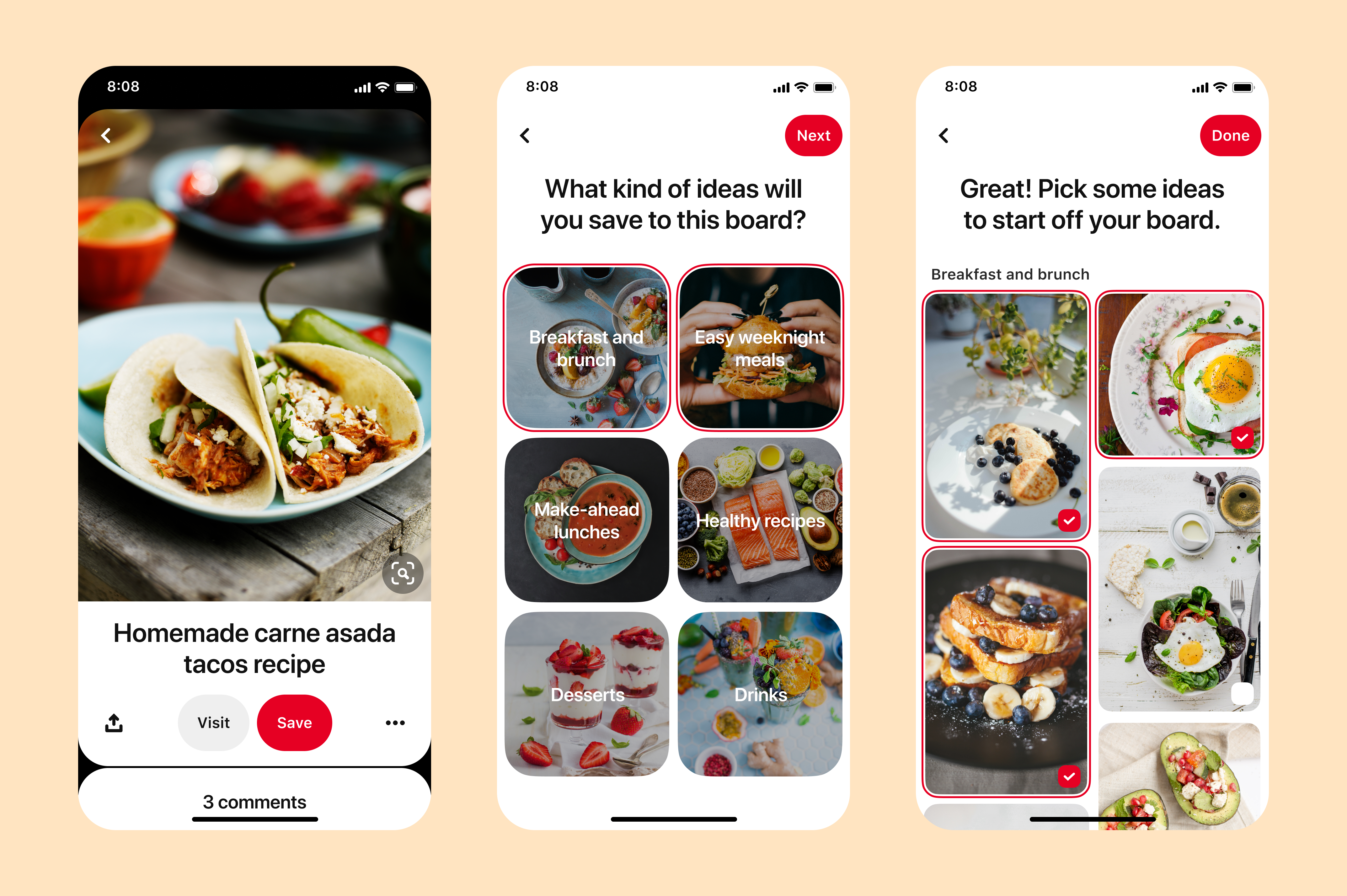Top 6 Most profitable blog niches for 2022

Top 6 Most profitable blog niches
A blog, which is short for “weblog,” is an informational or discussion website on the World Wide Web made up of short, often informal text entries (posts). Most of the time, posts are shown in reverse chronological order, with the most recent post at the top of the page. Before 2009, blogs were usually written by a single person or a small group. They typically focus on a single subject or topic. However, in the 2010s, “multi-author blogs” (MABs) became popular.
These blogs have been written by more than one person and are sometimes edited by a professional. A growing amount of blog traffic comes from MABs from newspapers, other media outlets, universities, think tanks, advocacy groups, and other similar organizations. In addition, Twitter and other “microblogging” systems are becoming more popular, which helps MABs and single-author blogs become part of the news media. The blog can also be used as a verb to keep a blog updated or add content to it.

In the late 1990s, web publishing tools made it easier for people who didn’t know much about HTML or computer programming to post content on the Web. This was when blogs started to become popular. Before, you had to know things like HTML and File Transfer Protocol to publish content on the Web. Most of the first Web users were hackers and computer enthusiasts.
In the 2010s, most websites are Web 2.0 sites that are interactive and let visitors leave online comments. This makes them different from other static websites. In this way, blogging can be seen as a way to connect with others. Bloggers do not only write posts for their blogs, but they also often get to know their readers and other bloggers. But there are popular blogs that don’t let people leave comments.
Many blogs comment on a subject or topic, such as science, politics, or sports. Other blogs talk about philosophy, religion, or the arts. Others are more like personal online diaries or online advertising for a person or business.
A typical blog has text, digital pictures, and links to other blogs, websites, and other media related to the topic. Readers can leave comments that anyone can see, and talking to other commenters is a big reason why many blogs are so popular. But blog owners or authors often moderate and filter online comments to eliminate hate speech or other offensive content.
Most blogs are mostly text, but some focus on art (art blogs), photos (photoblogs), videos (video blogs or “vlogs”), music (MP3 blogs), and audio (audio blogs) (podcasts). Blogs can be used as teaching tools in the classroom. These are called “edublogs.” Another type of blogging is microblogging, which has concise posts.
“Blog” and “blogging” are now used loosely to mean creating and sharing content on social media, especially when the content is long-form, and the person regularly creates and shares content. So, someone could keep a blog on Facebook or Instagram.
On February 16, 2011, more than 156 million blogs were open to the public. On February 20, 2014, there were about 75.8 million WordPress blogs and 172 million Tumblr blogs worldwide. Critics and other bloggers say that Blogger is the most popular blogging service. But Blogger does not give out statistics to the public. As of February 22, 2014, Technorati lists 1.3 million blogs.
Jorn Barger came up with the word “weblog” on December 17, 1997. Then, in April or May 1999, Peter Merholz broke the expression “weblog” into “we blog” as a joke in the sidebar of his blog, Peterme.com. This became the first use of the short form “blog.” Shortly after that, Evan Williams at Pyra Labs used “blog” as both a noun and a verb (“to blog,” which means “to edit one’s weblog or to post to one’s weblog”) and came up with the word “blogger” for Pyra Labs’ Blogger product, which made both comments famous.

Origins
Before blogging became popular, digital communities came in many forms, such as Usenet, commercial online services like GEnie, Byte Information Exchange (BIX), and the early CompuServe, email lists, and Bulletin Board Systems (BBS). In the 1990s, “threads” were used to keep conversations going in Internet forums. Threads link messages on a “virtual corkboard” about the same thing. From June 14, 1993, Mosaic Communications Corporation kept a list of new websites called “What’s New,” which was updated daily and saved once a month. The Mosaic web browser had a “What’s New” button that took you to the page.
In 1995, Ty, Inc. made the first business-to-consumer website, which included a blog in a section called “Online Diary.” This was the first time a blog was used for business. The entries were kept up to date by Beanie Babies that were featured and for which Web site visitors voted once a month.
People used to keep an online diary where they wrote about what was going on in their lives. This was the beginning of the modern blog. Most of these people called themselves diarists, reporters, or journalers. Justin Hall started a personal blog in 1994 while he was a student at Swarthmore College.
He and Jerry Pournelle are usually thought to be two of the first bloggers. People also say that Dave Winer’s Scripting News is one of the oldest and longest-running weblogs. Since 1996, the Daily Net News has been on the website of the Australian magazine Netguide. Most of the new websites that Daily Net News linked to and reviewed daily were in Australia.
Wearable Wireless Webcam was another early blog. It was an online diary of a person’s personal life that combined text, digital video, and digital pictures sent live to a website from a wearable computer and EyeTap device in 1994.
This method of semi-automated blogging with live video and text was called “sousveillance,” These journals were also used in court as proof. Before the word “blog” became popular, some of the first bloggers, like The Misanthropic Bitch, who started in 1997, called what they did online a “zine.”
“Blogging Thoughts” by Torill Mortensen and Jill Walker Rettberg was the first research paper about blogging. It looked at how blogs were being used to build research communities and exchange ideas and scholarship, as well as how this new way of networking turned traditional power structures on their heads.

Niche blogging is the process of making a blog with the goal of marketing to a specific niche market. Niche blogs, also called “niche websites,” can appeal to “geographic areas, a speciality industry, ethnic or age groups, or any other specific group of people.” Even though some say every blog is a niche blog in some way, the term “niche blog” is usually used to describe a specific type of blog.
Neither blogging nor marketing to a specific niche is a new idea. But the idea of a niche blog has only been around for the past few years.
Most of the time, niche blogs will have affiliate links or ads (pay-per-click or products or both). In some cases, the goal of a niche blog is to get people to visit another website where they may try to sell a product or service.
It can be hard to tell the difference between niche blogging and spam blogging. But because niche blogging relies on pay-per-click advertising and other ways to make money, blogs usually need to have good content related to their niche.
Niche blogging is popular with new marketers because it is cheap, easy to change, and brings in traffic, among other things.
Cost
Free hosting platforms like WordPress, Blogger, and Tumblr can make blogging a low-cost business. Bloggers who want to spend money can pay to buy domain names or host their blogs. Google uses a website’s speed as a ranking factor, so many people use self-hosted blogs. SEOs recommend that web admins host their blogs on high-quality servers.
Effectiveness
Regarding company-run websites, niche blogs are an excellent way to market because they aren’t as focused on making sales. Instead, niche blogs promote product and brand awareness by giving users helpful information instead of just trying to sell them something. This is why they are popular in many industries as an addition to company websites.
Targeting an audience
Niche bloggers make money by writing for readers in their niche, which could be a group of professionals in the same field or potential customers. Therefore, bloggers choose what to write about and how to present and promote their writing based on who their audience is.
Profitability
If they’re done right, niche blogs can give their writers a nice income. From just a little extra money to help pay the bills each month to giant sums that can replace or completely replace their full-time job salary. This is because this kind of blog is meant for a specific reader closer to the end of the sales funnel.
Let’s talk about the Top 6 Most profitable blog niches for 2022

1. Digital Marketing
Even for small businesses, it’s hard to overstate how crucial digital marketing is in today’s business world. In 2021, the US industry’s market size alone was $155.3 billion.
Digital marketing includes a wide range of strategies, such as search engine optimization (SEO), email campaigns, social media marketing, and marketing through influential people. As the eCommerce world grows, more and more online businesses are hiring marketers to help them find new customers, increase their conversion rates, and turn those customers into blog income.
Digital marketing has a lot of potential, whether you have a business degree or think you know a lot about social media. You can focus on a micro-niche, like affiliate marketing or social media management, and turn your blog into a valuable resource for various topics.
For example, Neil Patel, a well-known blogger and marketer, has a blog about the latest hacks and trends in digital marketing:
One of the most profitable blog niches is digital marketing, which Neil Patel writes about.
If you want to make money from your blog, you can use affiliate programs to promote a wide range of products and services. This includes tools for marketing, like SEO plug-ins, email lists, and platforms.

2. Blogging and making money online
In the past few years, blogging has become so popular that a large niche of blogs is devoted to helping people break into this industry. In the US, in 2020, there will be more than 31 million bloggers.
There are also a lot of blogs that show people how to make money online. This can include anything from blogging and freelance writing to working as a virtual assistant or starting your own online business.
Melyssa Griffin, a blogger, helps other bloggers and online business owners grow their businesses.
Blog about making money online by Melyssa Griffin
If you have been blogging for a while, this is an excellent niche to look into. Bloggers and other “influencers” have become very important in digital marketing in the past few years. The value of influencer marketing on the global market reached $13.8 billion in 2021
As more people look into blogging to make money, you can help them by giving them your best tips and advice. For example, you could teach them how to write content that gets people to buy or get traffic from social media like Pinterest.
When it comes to making money from your content, you can start by promoting affiliate products, like writing courses or SEO tools that can help people grow their blogs. You might even want to create your blogging course or charge for webinars.

3. Health and fitness
During the pandemic, the number of people taking online fitness classes grew when many people were forced to work out at home. But studies have shown that even after gyms reopen, nine out of ten Americans who work out regularly will still work at home.
If you’re a health professional, you can take advantage of this growing trend and a new audience by starting your fitness blog. Because of how this industry works, you don’t have to write blog posts. Instead, you can make all kinds of content, like workout videos, fitness courses, one-on-one training sessions, or tutorials on doing things right.
For example, the fitness site Love Sweat Fitness has blog posts, workout videos, and an app that helps you stay fit:
One of the most profitable blog niches is fitness, which is where the Love Sweat Fitness blog is. There are lots of ways to make money in this niche. For example, you can work with brands to promote things like clothing and fitness equipment. You could even sell a subscription to your workout videos or an online health program.

4. Personal finance and investing
People are always looking for better ways to take care of their money. Google data shows that searches on mobile devices about planning and managing money have grown by more than 70% in the last two years. The same information also indicates that there has been a significant rise in-app searches related to investing and stocks.
So, blogging about personal finances can be a profitable niche. As a financial advisor, you can help people save for retirement or make suitable investments with their money.
For example, the finance blog Making Sense of Cents has a lot of tips and advice about everything from saving money to paying off loans:
Making Sense of Cents is a blog about making money online, which is one of the most profitable blog niches to look into in 2022.
The FIRE niche (Financial Independence, Retire Early) is also very popular in 2022 and beyond. Lots of blogs help people plan for and reach FIRE.
But if your blog is about helping people save money and spend it wisely, you may be wondering how to get people to buy things through it. The key is to sell them something that will help them make more money over time.
In other words, you’ll need to show your product as something worth investing in. For example, you can teach people how to master the stock market by making an online course and putting it on your WordPress blog. You could even host webinars or help people with their finances one-on-one.

5. Food and recipes
Food is a topic that will always be popular and is one of the most profitable blog niches. It also has a lot of different sub-niches to look into, such as quick and easy meals and information about specific diets.
Home cooking is a food topic that has become more and more popular over the past few years. In fact, during the pandemic, the number of people taking online cooking classes went up by more than 1,177%.
There are a lot of people in the food niche. There are hundreds of blogs with recipes, meal plans, reviews of products, and diet tips.
This doesn’t mean it’s hard to get into the market of food bloggers. You’ll have to be creative, especially if this is your first blog. For example, you could put your spin on popular dishes or share new recipes.
Because this is a very visual topic, you might want to pair your food blog with an image-based platform like Instagram or Pinterest. The second one is a popular place to find recipes:

Recipes on Pinterest
When it comes to making money, there are many ways to go about it. For example, you could work with food companies to make recipes that use their products. If you want to make money without doing anything, you could sell your printable cookbooks or live-stream cooking classes on your blog.

6. Personal growth and self-care
In the past few years, self-care has become a popular trend. As a result, people are more aware of their mental health in these strange times, which has led to a growing interest in personal development and wellbeing.
But 80% of Americans plan to keep taking care of themselves even after the pandemic. A recent analysis by Google also shows that people’s interest in personal development is no longer just a “New Year’s trend” and that people are always searching for wellness-related questions.
You might want to get into the self-care business if you have training as a psychologist, wellness coach, or counsellor. There are many things you can write about, such as your morning routine, how you deal with stress, or how you keep a journal:
Self-care is one of the most profitable blog niches in 2022, and The Blissful Mind blog is about it.
Mintel did some research and found that more and more people are buying products that can help them relax and live healthier lives. This includes items for personal care, items for the home like scented candles, and tools for health like apps that help you keep a journal.
As a blogger about self-care, you can make money by promoting products that help your readers reach their goals. You can also offer life coaching sessions, mental health or self-improvement podcasts and sell digital products like journals through your blog.
Edited by Prakriti Arora




